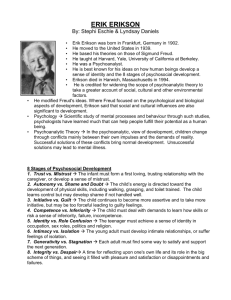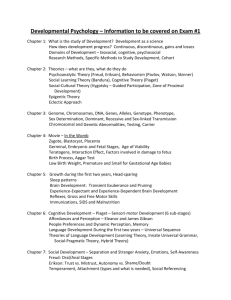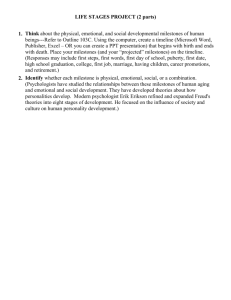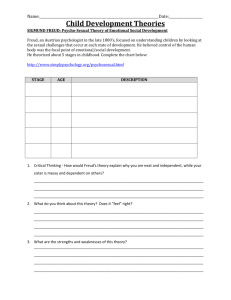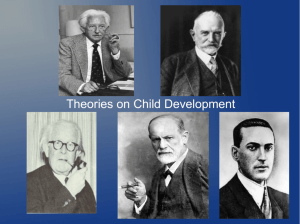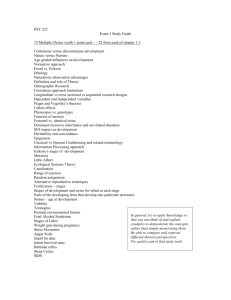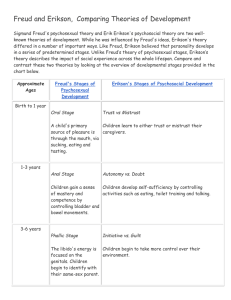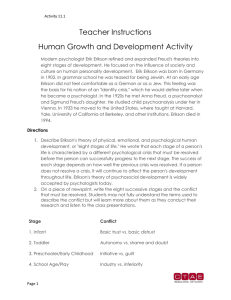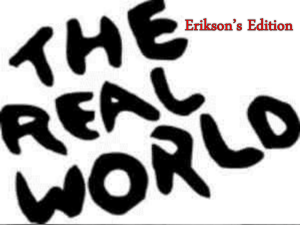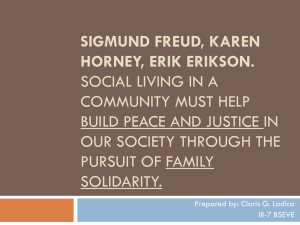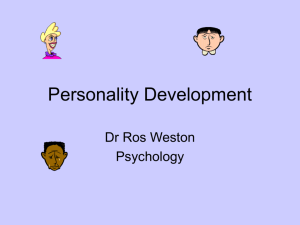Erikson 8 stages reflection
advertisement
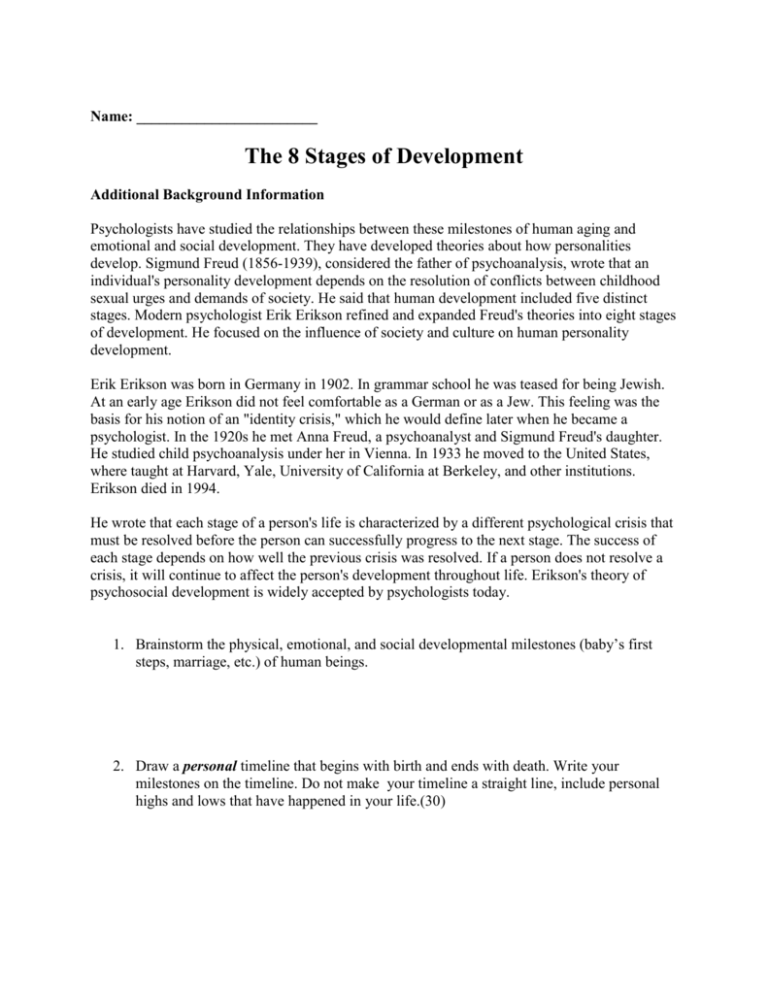
Name: ________________________ The 8 Stages of Development Additional Background Information Psychologists have studied the relationships between these milestones of human aging and emotional and social development. They have developed theories about how personalities develop. Sigmund Freud (1856-1939), considered the father of psychoanalysis, wrote that an individual's personality development depends on the resolution of conflicts between childhood sexual urges and demands of society. He said that human development included five distinct stages. Modern psychologist Erik Erikson refined and expanded Freud's theories into eight stages of development. He focused on the influence of society and culture on human personality development. Erik Erikson was born in Germany in 1902. In grammar school he was teased for being Jewish. At an early age Erikson did not feel comfortable as a German or as a Jew. This feeling was the basis for his notion of an "identity crisis," which he would define later when he became a psychologist. In the 1920s he met Anna Freud, a psychoanalyst and Sigmund Freud's daughter. He studied child psychoanalysis under her in Vienna. In 1933 he moved to the United States, where taught at Harvard, Yale, University of California at Berkeley, and other institutions. Erikson died in 1994. He wrote that each stage of a person's life is characterized by a different psychological crisis that must be resolved before the person can successfully progress to the next stage. The success of each stage depends on how well the previous crisis was resolved. If a person does not resolve a crisis, it will continue to affect the person's development throughout life. Erikson's theory of psychosocial development is widely accepted by psychologists today. 1. Brainstorm the physical, emotional, and social developmental milestones (baby’s first steps, marriage, etc.) of human beings. 2. Draw a personal timeline that begins with birth and ends with death. Write your milestones on the timeline. Do not make your timeline a straight line, include personal highs and lows that have happened in your life.(30) 3. Once your timeline is complete identify whether each milestone is physical, emotional, social, or a combination. (8) 4. Apply the eight successive stages and the conflict that must be resolved to your timeline using a different marker color. (8) Stage Conflict 1. Infant Basic trust vs. basic distrust 2. Toddler Independence vs. shame and doubt 3. Preschooler/Early Childhood Initiative (follow through with a task) vs. guilt 4. School Age/Play Industry vs. inferiority (beneath) 5. Adolescence Identity vs. role confusion 6. Young Adulthood Intimacy vs. isolation 7. Adulthood Generativity (independent ability to create, generate, or produce vs. stagnation) 8. Old Age Ego integrity (self-esteem) vs. despair (hopelessness) Total= /46 Discussion Questions You may work with a partner to discuss and answer these questions. Record answers in your journals. 1. What are the significant relationships in each of the first five stages of a person's life? How do changes in these relationships reflect social and psychological changes in a person's life? (5) 2. Look closely at Erikson's fourth stage. Do you think he correctly identifies the primary struggle for school-aged children? From your own experience, do you think there might be another way to explain the fundamental changes that occur during this stage of life? (5) Reflection- choose ONE of the following 1. Describe an “identity crisis” you have struggled with in your own life. As you define your own identity, what are the different roles you must integrate? (Examples: daughter, teammate, worker, student, or boyfriend.) Where do you find inspiration? (Examples: specific role models, events, or beliefs.) Describe pressures that can make it difficult to define your own personality and beliefs. For example, stage 4, school age, is when children begin school and learn new skills. If this stage is met successfully, a child will develop a sense of competence. He or she is more likely to feel confident about learning new subjects in school, talking in class, and taking on new challenges. If not, he or she will develop a sense of inferiority, may be reluctant to ask questions, and could fall behind, feeling stupid or discouraged. (10) 2. Reflect on examples of teenagers struggling to define their own identity? Why do they think an identity crisis occurs for most people during their teenage years? What are basic skills and values that are necessary to successfully resolve an identity crisis? (Examples: confidence, trust, competence.) (10)
